Testing of Environmental Mycotoxins:
Gain Control of the Air Quality Inside and Outside
Do harmful compounds in mold worry you? Modern mycotoxin testing kits help to improve indoor safety.
- Which indoor mycotoxins are the most common and which pose the greatest health hazards?
- Find out how much mycotoxins you’ve been exposed to by breathing in the air.
- Knowing that, following mold removal, mycotoxins have been reduced to safe levels in the air and on surfaces can help you relax.
- Apply the results to guide your healthcare professional’s healing discussion of dangerous mold exposure.
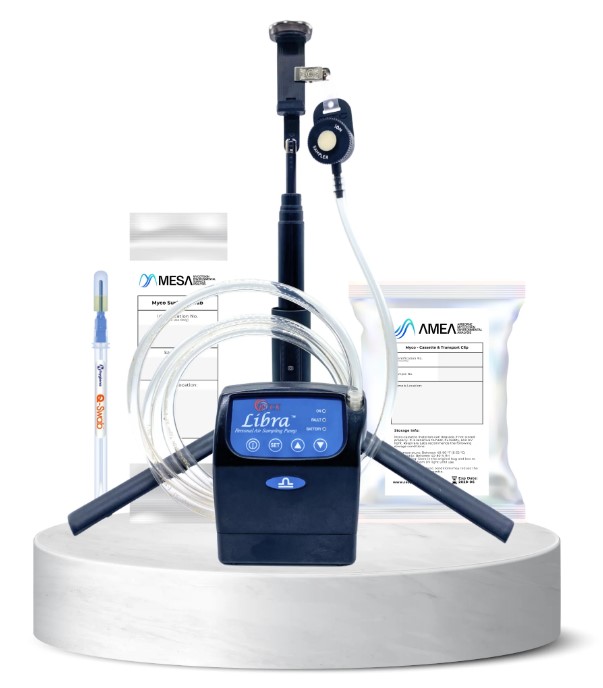

Molds Produce Mycotoxins
Chemical byproducts called mycotoxins are created by molds to protect themselves against other molds and fungi fighting for the same resources in the same surroundings. These mycotoxins can cling to surfaces in your home and disseminate into the air.

Mold Spores Versus Mycotoxins
Not all mold spores are mycotoxins. Because of the way they are biological, mold spores can resemble hay fever symptoms. Chemical poisons called mycotoxins can result in anything from small ailments to major ones like cancer.
How Does mycotoxin testing improve indoor air quality?
Mycotoxin Testing Benefits: Safe Air and Secure Surfaces

Protect Your Health:
Serious brain effects of mycotoxins include neurologic and neuropsychiatric disorders. As such, finding out about them can help shield you and your family from cancer.

Take Charge of Your Air Quality:
Although inhaled mycotoxins are extremely dangerous because they enter the bloodstream directly, mycotoxin air testing can detect their presence and advise on the best way to remove mold.

Post-Remediation Verification:
Surface and air mycotoxin testing can confirm that mold remediation effectively removed mycotoxins produced by mold from your environment.

Lingering Mycotoxins:
The need of testing for and eliminating mycotoxins is highlighted by the fact that mycotoxins can remain in buildings long after mold remediation procedures have been finished.
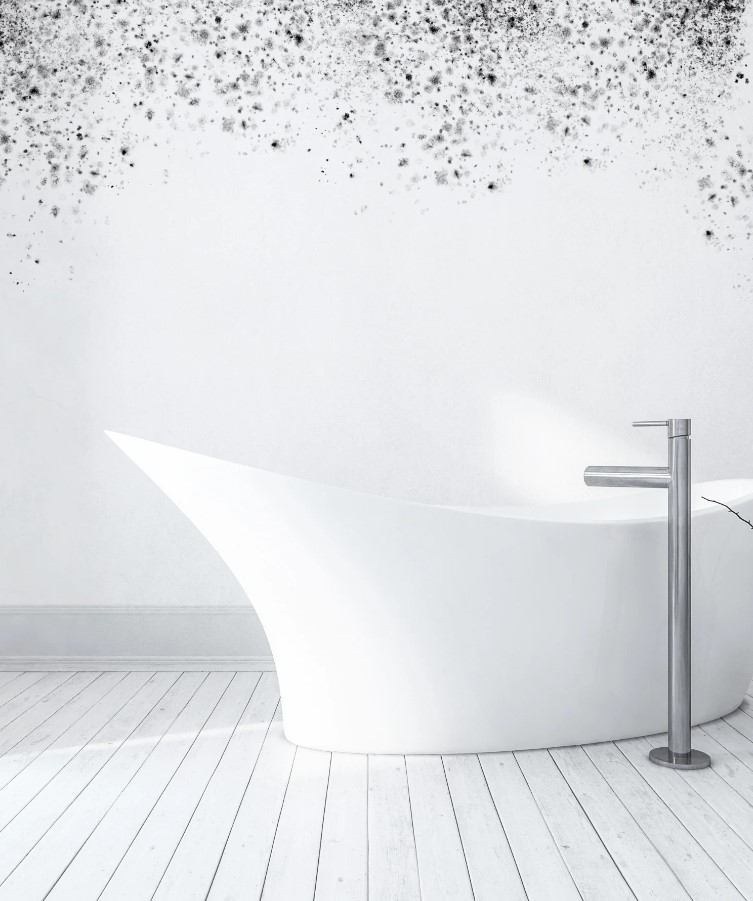
The Advantages of Integrating Spore Trap and Mycotoxin Testing
Identifying the Variations Between Spore Trap and Mycotoxin Testing
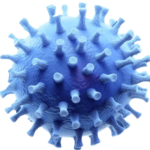
Testing of Mycotoxins
Description: An approach and methodology intended to monitor, identify, and collect mycotoxins in indoor settings.
Objective:To determine which of the most hazardous chemical byproducts of mold are present in interior environments on surfaces as well as in the air. This can help to assess the possible health hazards and support the removal of them.

Testing Spore Traps
Description: Method for collecting and quantifying a wide variety of airborne mold and fungus spores.
Objective: To find out what kind of mold is in the air and to determine if the amount of spores points to a fungal problem in the interior space.
Test your home environment for mycotoxins and spore traps simultaneously. Spore trap testing finds the kind of mold present, but mycotoxin testing finds the harmful substances that molds, either active or inactive, have created and can seriously jeopardize your health. These two testing techniques combined will allow you to get a more thorough assessment of the quality and safety of your house or structure.
Surface and Air Mycotoxin Testing

Airborne Mycotoxin Environmental Analysis (AMEA)
air quality problems caused by dangerous mold and the airborne mycotoxin byproduct it produces can be investigated using the AMEA mycotoxin air test. The measurement of mycotoxins in the air has been made possible by Respirare Labs’ novel patented extraction method and the revolutionary new test ELISA (Enzyme-Linked Immunosorbent Assay). For immediate assurance of the air quality in your house, get in touch with us.
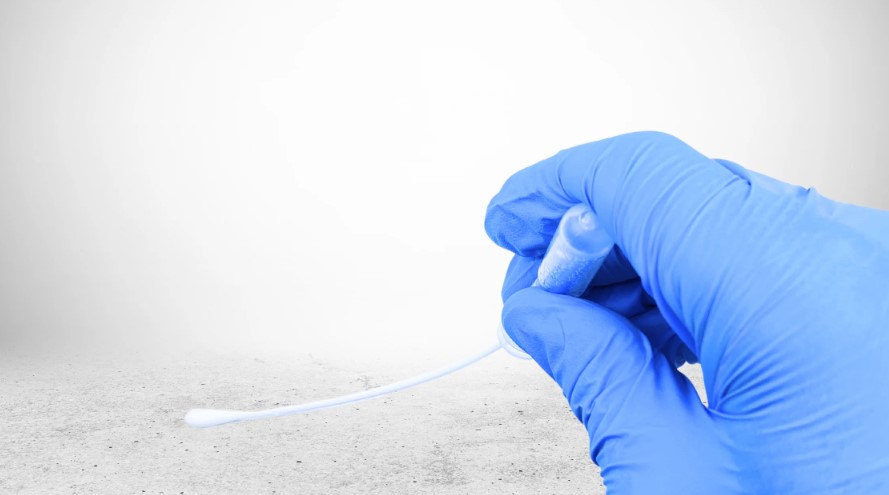
Mycotoxin Environmental Surface Analysis (MESA)
Are mycotoxins on surfaces inside worrying you? Contact us to arrange for a MESA mycotoxin surface test Using MESA mycotoxin surface testing, the most common mycotoxins can be detected on walls, furniture, and HVAC systems. Enzyme-Linked Immunosorbent Assay (ELISA) and our unique extraction method make surface testing easy and protect against contact with hazardous toxic mold metabolites.Surface and Air Mycotoxin Testing Panel
Air and Surface Mycotoxin Testing Panel
| Aflatoxin B1, B2, G1, G2 | ✔️ |
| Ochratoxin A | ✔️ |
| Trichothecenes T2, HT2 | ✔️ |
| DON (Vomitoxin) | Upon Special Request |
| Zearalenone | Upon Special Request |
| Fumonisin | Upon Special Request |

The Science Informing Mycotoxin Air Testing

Static Samples
The room’s air is stirred up before testing to mimic usual activity before AMEA sampling. This mimics and helps to deliver consistent outcomes similar to what you would actively inhale.

A patented method
The mycotoxin air test (AMEA) developer Respirare Labs prepares samples for industry-standard ELISA testing using a unique extraction method. One well accepted method of analysis used frequently to identify and quantify mycotoxins is the Enzyme-Linked Immunosorbent Assay (ELISA).
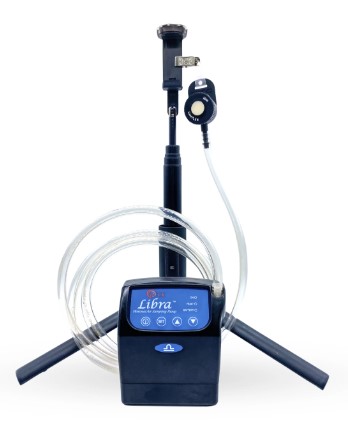

The Breathing Zone
Known as the “breathing zone,” samples for AMEA testing are gathered five feet above the ground. By this technique, the samples are guaranteed to fairly reflect the mycotoxins that could be ingested and inhaled.

Reports
The foundation of AMEA mycotoxin testing is extensive research by Respirare Labs, which has determined typical background values for indoor airborne mycotoxins. For easier interpretation, your test findings are next compared to these set standards and given in parts per billion (ppb) per cubic metre.

Surface Mycotoxin Testing: Critical Applications

Furniture
Make sure your furniture is safe to use and clear of any remaining mycotoxins after mold or water damage. This assurance and the need of a cleaning solution to preserve the quality of the furniture can be relied upon from MESA mycotoxin surface testing.

Post Remediation
Highly advised for post-remediation purposes is the MESA mycotoxin surface test. To be sure there is no longer any risk of mycotoxins created by mold, it is more sensible to use this test after mold remediation, even though it can be helpful to examine your surfaces before to identify the hazards.


Walls
Getting a wall sample from where the mold was previously present is strongly advised to guarantee complete mold removal and to look for any residual mycotoxins. Including this extra step can assist guarantee the health and safety of your surfaces.

HVAC Systems
Did you realize that mycotoxins could be being distributed throughout your house or business by HVAC systems? The system can readily allow these poisons to enter and taint the air you breathe. Get a Respirare Labs MESA swab of your return air duct to determine if your HVAC system requires cleaning or if it’s actively promoting the spread of mycotoxins.
Does Testing for Environmental Mycotoxins Interest You?
If you have any questions about AMEA and MESA mycotoxin testing in New Jersey, feel free to call 732-716-2384 or contact us. We’ll be happy to assist you.
